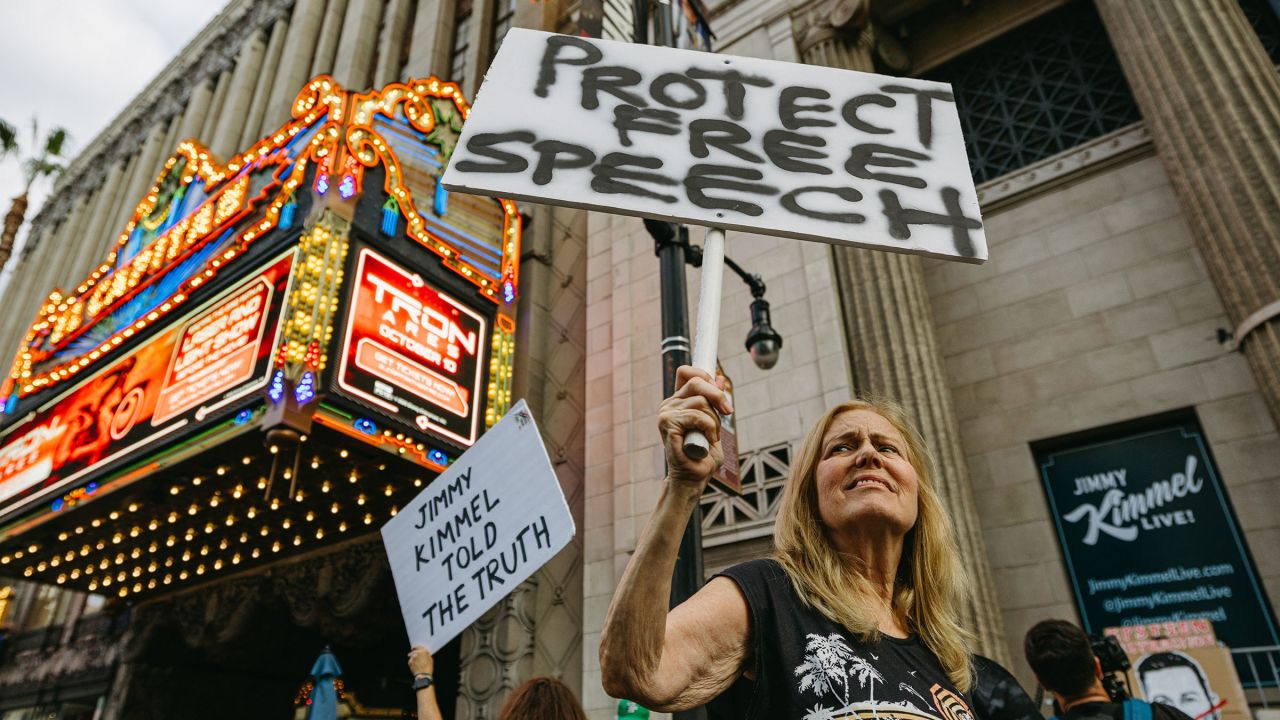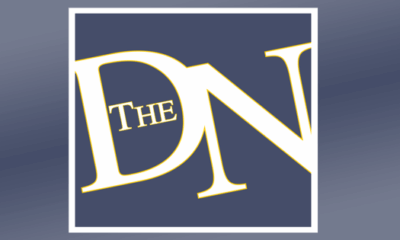Science
Media Censorship: Kimmel’s Show Removal Echoes Global Trends

The recent decision to remove Jimmy Kimmel’s late-night talk show from the airwaves has sparked discussions about media censorship in the United States. Many observers note parallels between this action and the anti-media rhetoric propagated during Donald Trump’s presidency. This move raises concerns about the implications for media freedom, particularly in light of how similar measures have been enacted in various other countries.
Comparisons to Global Media Suppression
According to CNN correspondent Nathan Hodge, Kimmel’s sidelining reflects a broader trend of media suppression that has been witnessed in authoritarian regimes. Several countries have faced accusations of stifling dissent and controlling narratives through the elimination or restriction of critical media outlets. The decision to take Kimmel’s show off air is seen by some as part of a worrying trajectory in which media is increasingly viewed as an adversary rather than a pillar of democracy.
Hodge’s analysis suggests that this situation mirrors actions in countries where government officials actively seek to undermine media organizations that challenge their authority. Reports from various international watchdogs indicate that media suppression tactics, including censorship and intimidation, are frequently employed to silence dissenting voices. In this context, the removal of Kimmel’s program may appear as a troubling precedent for media freedom in the United States.
The Broader Impact on Public Discourse
The implications of such media restrictions extend beyond entertainment. Late-night talk shows, including Kimmel’s, have historically served as platforms for political discourse and public engagement. By curtailing these programs, critics argue that the government risks diminishing the diversity of viewpoints available to the public. This could further polarize the media landscape, making it harder for audiences to access balanced perspectives.
Notably, the removal of Kimmel’s show comes at a time when public trust in media is already fragile. A survey conducted by the Pew Research Center in early 2023 indicated that only 26 percent of Americans expressed confidence in the media to report the news accurately and fairly. This growing skepticism has been fueled by an environment characterized by political rhetoric that often undermines journalistic integrity.
The ongoing debate surrounding media freedom is particularly salient as it relates to the role of late-night television in shaping public opinion. These shows often tackle pressing issues in a humorous yet critical manner, allowing for a unique blend of entertainment and information. Dismissing or removing such content risks depriving audiences of an essential outlet for civic engagement.
As conversations around media censorship continue to evolve, the case of Jimmy Kimmel serves as a reminder of the delicate balance between government oversight and media independence. The global comparisons drawn by analysts highlight a pressing need for vigilance in safeguarding journalistic freedoms, ensuring that media remains a vibrant and diverse forum for ideas.
-

 Technology4 months ago
Technology4 months agoDiscover the Top 10 Calorie Counting Apps of 2025
-

 Health2 months ago
Health2 months agoBella Hadid Shares Health Update After Treatment for Lyme Disease
-

 Health3 months ago
Health3 months agoErin Bates Shares Recovery Update Following Sepsis Complications
-

 Technology3 weeks ago
Technology3 weeks agoDiscover 2025’s Top GPUs for Exceptional 4K Gaming Performance
-

 Technology2 months ago
Technology2 months agoElectric Moto Influencer Surronster Arrested in Tijuana
-

 Technology4 months ago
Technology4 months agoDiscover How to Reverse Image Search Using ChatGPT Effortlessly
-

 Technology4 months ago
Technology4 months agoMeta Initiates $60B AI Data Center Expansion, Starting in Ohio
-

 Technology4 months ago
Technology4 months agoRecovering a Suspended TikTok Account: A Step-by-Step Guide
-

 Health4 months ago
Health4 months agoTested: Rab Firewall Mountain Jacket Survives Harsh Conditions
-

 Lifestyle4 months ago
Lifestyle4 months agoBelton Family Reunites After Daughter Survives Hill Country Floods
-

 Technology3 months ago
Technology3 months agoUncovering the Top Five Most Challenging Motorcycles to Ride
-

 Technology4 weeks ago
Technology4 weeks agoDiscover the Best Wireless Earbuds for Every Lifestyle





















